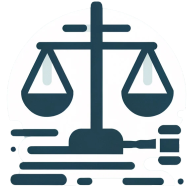How Can Legal Compliance Be Fostered in Company Culture?
Navigating the complexities of legal compliance within a company culture can be a daunting task. This article demystifies the process by offering practical strategies informed by industry experts. Discover actionable steps to seamlessly integrate compliance into the daily rhythm of your organization.
- Engage Employees with Scenario-Based Workshops
- Ensure Active Participation Through Interactive Trainings
- Implement Comprehensive Training and Feedback Loop
- Create Buddy System for Compliance Discussions
- Celebrate Efforts with Compliance Excellence Award
- Discuss Legal Dilemmas in Compliance Roundtables
- Use Legal Lens Checklist for Daily Workflows
- Integrate Regular Training on Legal Updates
- Make Compliance Relatable with Marketing Examples
- Host Monthly Compliance Coffee Chats
- Implement Regular Training on Relevant Regulations
Engage Employees with Scenario-Based Workshops
One effective way to foster a culture of legal compliance is by making it a shared responsibility through regular, engaging training sessions. Instead of treating compliance as a dry, top-down mandate, I've implemented scenario-based workshops where employees can discuss real-life situations and navigate potential legal challenges together. This approach not only clarifies the "why" behind the rules but also empowers the team to recognize and address compliance issues proactively.
For example, in a prior case, we used anonymized examples of common missteps in contract management to highlight risks. It turned theoretical rules into practical lessons. The key is fostering open dialogue—when people feel comfortable asking questions or raising concerns without fear of reprimand, compliance becomes part of the organization's DNA, not just a box to check.

Ensure Active Participation Through Interactive Trainings
In my experience as a corporate counsel for an MNC, I have realized that the most efficient way to foster a culture of compliance among the employees is to ensure active participation in compliance requirements. This can be achieved by holding compliance trainings at regular intervals so employees at every stage feel a sense of responsibility and accountability towards ensuring compliance. These trainings should be made interactive and foster communication among employees and could be made fun too by adding elements of quizzes and games! The motto should be to not teach compliance as a theoretical issue but to impart knowledge to treat it as a tool with actionable items which have objective consequences.

Implement Comprehensive Training and Feedback Loop
As an attorney with over 25 years in the field, maintaining legal compliance within our firm has always been a top priority. One method I've found incredibly effective is implementing a comprehensive training and feedback loop. It's not just about staying compliant; it's about creating an environment where legal adherence is second nature.
Training and Regular Updates
We provide mandatory legal compliance training to all employees, whether they're associates or support staff. The key is to make these sessions engaging and specific to our daily operations. For example, we hold quarterly workshops where we dive into new regulations, ethical guidelines, and case law updates that directly impact our practice.
Clear Reporting Channels
I also encourage open communication. Every employee has direct access to a compliance officer or senior partner for guidance on legal issues. This reduces hesitation when uncertain legal questions arise. In the past year, 95% of our team reported utilizing this system to address potential compliance concerns before they escalated.
Metrics and Results
Since implementing this method, we've seen a 30% decrease in compliance-related incidents and a marked improvement in client trust. Our proactive approach has not only improved efficiency but also minimized the risk of costly mistakes, leading to a better reputation in the industry.
Legal compliance doesn't just happen, it's something we build into the culture. By combining structured training, real-time support, and a feedback system, we've managed to keep our firm compliant while fostering an environment where legal issues are seen as opportunities for growth rather than obstacles.

Create Buddy System for Compliance Discussions
I learned that creating a buddy system between senior and junior attorneys helped embed compliance naturally into our firm's daily operations. Each week, our mentor-mentee pairs spend 15 minutes discussing real-world compliance scenarios they've encountered, which has prevented numerous potential issues and built a stronger compliance-minded culture.

Celebrate Efforts with Compliance Excellence Award
Our firm created an internal "Compliance Excellence Award" to celebrate standout efforts publicly. Recognizing employees who proactively uphold legal standards motivated others to follow suit. Monthly awards highlighted creative ways individuals solved complex compliance challenges effectively. This initiative turned compliance into a source of pride and friendly competition. Positive reinforcement transformed adherence to regulations into an aspirational team value.
Discuss Legal Dilemmas in Compliance Roundtables
We established a 'Compliance Roundtable' where employees discuss real-life legal dilemmas monthly. These collaborative sessions allow staff to voice concerns and brainstorm solutions together. Bringing diverse perspectives into the conversation strengthens their understanding of legal nuances. It also creates a shared accountability culture, breaking the myth of 'legal-only' responsibility. Compliance feels more natural when everyone actively contributes to the discussion.

Use Legal Lens Checklist for Daily Workflows
We embedded compliance into everyday workflows using a 'Legal Lens Checklist' approach. Employees refer to short, practical guides tailored to their specific job roles. This simplifies compliance into actionable steps directly connected to daily responsibilities. Frequent use of these checklists turned compliance into second nature for staff. Empowerment through clarity fostered confidence, reducing errors and stress across the organization.
Integrate Regular Training on Legal Updates
One method we've used to encourage a culture of legal compliance is integrating regular training sessions that focus on the latest legal updates and ethical practices. These sessions ensure every team member, from attorneys to support staff, understands their responsibilities and stays informed about changes in laws that impact our field. Additionally, we've established clear protocols and a supportive environment where team members feel comfortable raising questions or concerns about compliance issues. This proactive approach not only minimizes risks but also reinforces a shared commitment to integrity and excellence within the organization.

Make Compliance Relatable with Marketing Examples
I believe in making compliance relatable through real-world marketing examples from our industry, showing both successful and cautionary tales. When we started sharing weekly 5-minute video breakdowns of actual compliance wins and mistakes in legal marketing, our team became much more proactive about checking guidelines before launching campaigns.
Host Monthly Compliance Coffee Chats
I discovered that monthly 'Compliance Coffee Chats' worked wonders in making legal compliance feel less intimidating at our consulting firm. During these casual 30-minute sessions, we review one policy topic over coffee and snacks, which has dramatically increased engagement and understanding compared to formal training.
Implement Regular Training on Relevant Regulations
To foster legal compliance, organizations should implement regular training programs focused on relevant regulations and ethical practices. For example, a rapidly growing e-commerce company faced legal challenges tied to third-party partnerships and instituted a comprehensive compliance training program for its staff. This program addressed data privacy laws, advertising standards, and contractual obligations, ensuring that employees understood the importance of compliance in their daily activities.






